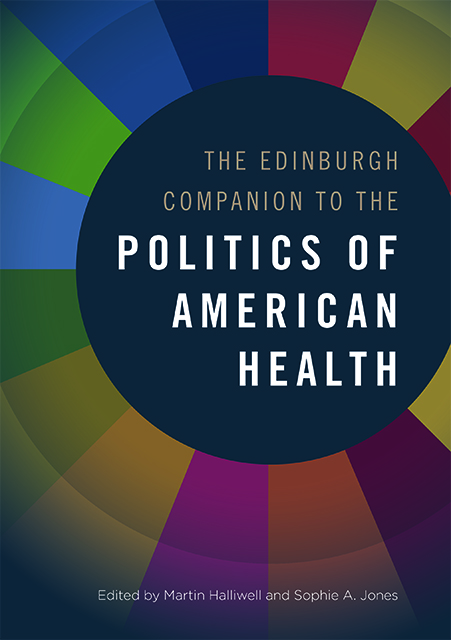Book contents
- Frontmatter
- List of Contents
- Notes on Contributors
- Introduction: The Political Landscapes of American Health, 1945–2020
- I Geography, Community and American Health
- II Critical Health Conditions: Debates and Histories
- III The Politics of Children's Health
- IV The Institutional Matrix of Health Care
- V The White House, Congress and Health Reform
- VI Justice, Ethics and American Health
- VII Public Health and Global Health
- General Bibliography
- Index
31 - Occupational and Environmental Health in Twentieth-Century America
Published online by Cambridge University Press: 12 August 2023
- Frontmatter
- List of Contents
- Notes on Contributors
- Introduction: The Political Landscapes of American Health, 1945–2020
- I Geography, Community and American Health
- II Critical Health Conditions: Debates and Histories
- III The Politics of Children's Health
- IV The Institutional Matrix of Health Care
- V The White House, Congress and Health Reform
- VI Justice, Ethics and American Health
- VII Public Health and Global Health
- General Bibliography
- Index
Summary
It may seem strange that any men should dare to ask a just God's assistance in wringing their bread from the sweat of other men's faces. (Abraham Lincoln, Second Inaugural Address, 1865)
What historically has constituted occupational safety and health? From as early as the nineteenth century, from the very origins of the American industrial revolution this question was as much a political and social issue as it was a medical one. Were they only problems of accidents or acute poisonings caused by exposures to lead, arsenic, mercury and other heavy metals or did they include chronic diseases such as silicosis and asbestosis, harbinger of the problems we now confront in the wake of the new industrial world that emerged in the middle of the twentieth century?
To doctors and public health practitioners throughout the past two centuries, occupational safety and health has changed as the new industrial age has exposed millions of people to dusts and chemicals that have become the basis of much of modern society. Today, as we have become dependent on coal, petrochemicals and new sources of energy, the presence of dust and various toxins in the working and living environments is no longer exceptional. It is not only doctors and public health officials who have been engaged with these issues, but industry and labor have helped to define the boundaries between normal and abnormal, healthy and diseased. Industry often argued that workers and their families had to accommodate to the new industrial realities. To inhale dust was a normal everyday occurrence for people living in industrial communities and cities. Under these modern conditions, health and disease were part of one continuum, not two dichotomous categories. The presence of dust in workers’ lungs was not pathological; only ‘excessive’ amounts that limited their activity could be considered pathological. However, as we trace in this chapter through to the contemporary period, for workers and their families the normalizing of insults to their bodies had personal meaning that was part of a larger struggle over who would control their bodies and their lives.
- Type
- Chapter
- Information
- The Edinburgh Companion to the Politics of American Health , pp. 535 - 552Publisher: Edinburgh University PressPrint publication year: 2022



